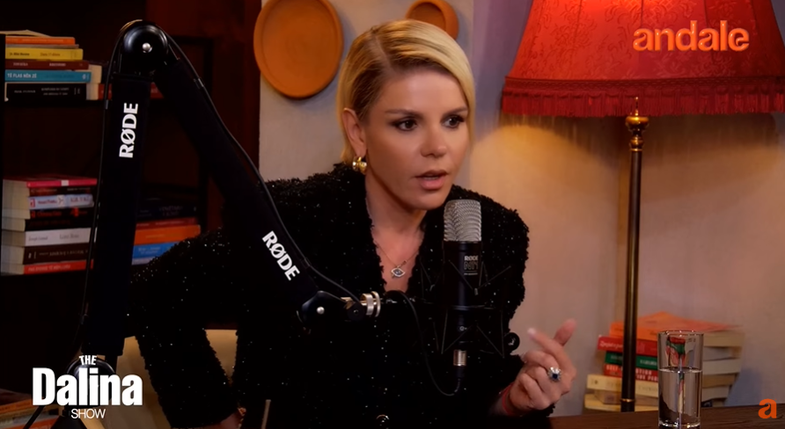
In the monologue that opened the latest episode of "The Dalina Show" on Andale Media , Dalina Buzi raised some of the most frequent – ??and most misunderstood – questions asked of victims of domestic violence:
"Why don't these women leave? Why don't they get divorced? Why do they stay and endure for so long?"
These are questions we encounter in comments, in conversations between friends, on television panels. They are loaded with judgment, even when they arise from sincere concern. But before we ask women to "leave," we need to understand why they don't leave.
Dalina's monologue didn't provide one answer. It provided twelve. And each was a strong reason representing different realities, from the most visible to the most invisible.
1. Because there are many more than we think
According to the data Dalina provided, 736 million women worldwide – 1 in 3 women – have experienced violence from a partner at least once. They are women from all walks of life: highly educated or uneducated, employed or economically dependent, famous or unknown. Violence knows no specific profile.
2. Because only 20% flee after the first attack
Less than a quarter of women who experience physical violence leave immediately. Not because they don't want to. But because they can't, or don't know they should. Above all, they don't know how.
3. Because they were raised with the model of patience
Many girls have been raised by mothers who have portrayed marriage as an institution where it is “put up with” 24/7. The silent education that comes from home is stronger than any awareness-raising spot.
4. Because they are economically stranded
When you've sacrificed your career to raise your children, leaving isn't just an emotional decision. It's a calculation. And when the rent is minimum wage, it doesn't add up.
5. Because they fear for their lives
There are women who have been threatened with guns. There are men who state it clearly: “We won't break up unless one of us dies.” These are not rare cases – they are more common than we think.
6. Because they hope he will change
Many women remember the first few months of the relationship – when the abuser was “perfect.” They hope that that version will return. And when he cries and begs after each episode of violence, hope is rekindled.
7. Because they have been psychologically manipulated
Brainwashing is one of the most invisible and powerful forms of control. When you are made to believe that you are to blame, that you provoked the violence, running away no longer seems like a solution, but a mistake.
8. Because they risk losing their children
A woman who is in conflict with a man with power, money, and connections is often faced with the real threat: "If you divorce, you will never see the children again."
9. Because they are surrounded by religious, cultural or family walls
In many circumstances, divorce is taboo. And a woman who grows up with this idea does not see separation as an opportunity, but as a personal and social failure.
10. Because they are afraid of the consequences
Statistics show that 75% of murders occur after a breakup, not during the relationship. Running away is more dangerous than staying. And women know this.
11. Because society judges victims more than perpetrators
A woman who speaks out about violence is prejudiced, slandered, and stigmatized. One example in the social circle is enough to silence dozens of others.
12. Because they don't immediately realize they're in an abusive relationship
Not all violence is physical. Many women discover years later that what they have experienced is control, isolation, and emotional blackmail. But by the time you realize it, it may be too late to act lightly.
In the end, Dalina closed with a sentence that should follow us beyond the show's studio:
"If it hasn't happened to you, it doesn't mean you're any better. And if it has happened to you and you ran away from the first attack, it still doesn't mean you're any better."
Because every woman has her own story, her own circumstances, and her own time. What we can do is understand more, judge less.
“We listen and we don't judge.” This isn't just a TikTok saying. It's an urgent need for a society that still looks for the victim before it looks for the perpetrator.
Full episode of "The Dalina Show":





